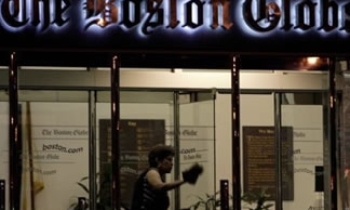A Canadian court has overturned a landmark 2004 court ruling that recognised journalists have a broad right to protect confidential sources, even in the context of police investigations.
The Ontario Court of Appeal's decision last week resurrects a search warrant giving the Royal Canadian Mounted Police (RCMP) the authority to seize a document from a National Post reporter that went to the heart of the "Shawinigate" scandal involving former Prime Minister Jean Chrétien.
The ruling of Friday last that the right to protect confidential sources is superceded by the police need to investigate alleged crimes overturned an Ontario Superior Court decision that struck down an RCMP warrant against the National Post and reporter Andrew McIntosh in September 2002. The police allege leaked documents detailing a controversial loan to a Quebec hotelier in Chrétien's riding are forged and seek to analyse them for fingerprints and DNA to identify the source.
The court ordered the Post's editor-in-chief to produce the document and envelope to the Crown, the Toronto Star reported. The envelope held by McIntosh contained an apparently forged loan document inside, purporting to show the owner of a Quebec golf club owed money to Chrétien's holding company and planned to repay it with a loan from the Business Development Bank of Canada. Chrétien admitted lobbying the bank president for loan approval.
Douglas Kelly, National Post Editor-in-Chief, said the paper would study the decision carefully before deciding whether to seek leave to appeal to the Supreme Court of Canada. "While we are obviously disappointed with this decision, it is important to point out that it does uphold some basic journalistic principles, including the importance of being able to protect the confidentiality of sources when pursuing important stories that are in the public interest," Kelly said.
"The decision is a major setback for press freedom and the public's right to know," said Canadian Association of Journalists (CAJ) president Mary Agnes Welch. "It would effectively require journalists to become agents of the state, which will put a chill on whistleblowers and other people of conscience who would bring matters of profound public importance to light."
The ruling is the latest in a series of attacks on the use of confidential sources in Canada, Welch asserted. "The legal standard in Canada should allow any journalist to protect the identity of their confidential sources, period. This is woefully absent from our laws and jurisprudence, which is what can lead to rulings like this one."
The appeal court decision overturned Justice Mary Lou Benotto's January 21, 2004, ruling that stated, in part: "It is through confidential sources that matters of great public importance are made known...To deprive the media of an important tool in the gathering of news would affect society as a whole. The relationship is one that should be fostered."
Last week's ruling found that the newspaper's interest in the documents was in the information it contained, not the physical document or envelope that police seek to examine. This aspect ignores the facts at the heart of the issue, Welch said.
"The physical materials in this case go to the core principle of protecting confidential sources," Welch said. "Police are on a witch-hunt to root out a whistleblower who exposed important and embarrassing information, and they are trying to use forensic tests to do it. If that isn't an attempt to subvert the relationship between journalists and confidential sources, I don't know what is."
CAJ previously testified and submitted an affidavit supporting the National Post and reporter Andrew McIntosh in the case. McIntosh is now a reporter for the Sacramento Bee newspaper in California, US.









